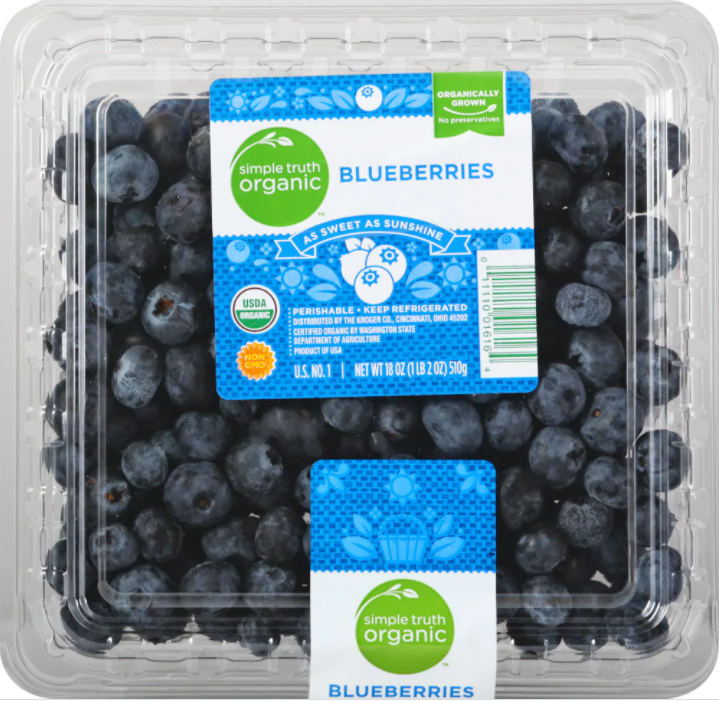Consumers want to buy blueberriesfor their healthy properties, but often find that the quality of the berries can be inconsistent from one purchase to the next. The blueberriessupply chain needs cultivars that not only possess good fruit quality characteristics - including size, colour, flavour, texture and durability - but also express these characteristics over and over again, said Massimo Iorizzo, associate professor of plant genetics at North Carolina State University.
Iorizzo leads the Vaccinium Coordinated Agricultural Project, VacCAP, a new effort to improve the quality of Vaccinium fruit (which includes blueberryand cranberry) by bringing together researchers in the fields of breeding, genetics, food science and socioeconomics. The main goal of the project is to find fruit characteristics that consumers like, understand the genetics behind these characteristics and develop a breeding framework around them, Iorizzo said.
"Both blueberryand cranberry are closely related, so working together among a network of Vaccinium breeders and sharing discoveries made through the use of more advanced DNA-based tools has enormous potential to lead to discoveries and selections that will result in better cultivars for growers," said Lisa Wasko DeVetter, associate professor at Washington State University and co-leader of the VacCAP team.
He said VacCAP follows a similar project for Rosaceae crops, RosBREED, in building a community of researchers and industry members with similar breeding goals, enabling the sharing of technology development and information.
RosBREED has brought together a national team of breeders and researchers working on pome, stone fruit and berries. The effort has received nearly $25 million from the US Department of Agriculture over 10 years, beginning in 2009, for work focused on finding genetic markers for fruit quality traits and disease resistance that are now being used by breeders across the country and beyond.
Initial work on the Vaccinium project began in 2016, when the USDA provided a $50,000 planning grant, allowing a team of scientists, led by Iorizzo, to investigate the US blueberriesand cranberry supply chains to better understand their breeding priorities. They found that fruit quality is the top priority for both supply chains. Other priorities include disease resistance and the ability to withstand mechanical harvesting, Iorizzo said.
VacCAP became official in September 2019, with $12.8 million from a combination of federal funding and matching funds from institutions and industry stakeholders. Members include breeders and geneticists from public and private institutions across the country, as well as scientists specialising in the socio-economic, food science and post-harvest aspects of Vaccinium crops. The project also includes collaborators from New Zealand and Italy, he said.
By the end of the project, scheduled for 2023, Iorizzo expects that a significant number of genomic resources and phenotyping methods will be provided to breeders and scientists of blueberriesand blueberriesreds. He also expects to expand knowledge on the relationship between DNA, fruit characteristics, fruit quality and consumer behaviour. In the long term, he hopes that the project will lead to an increase in the production of higher quality fruit, which will result in an increase in the consumption of blueberryand cranberry products.
To achieve these goals, the project is organised into several teams of specialists, each with a different objective. The team leaders are members of the executive committee, which meets every two months. Iorizzo pointed out Chad Finn's leadership role in the project. Finn, a long-time geneticist and berry breeder with the USDA's Agricultural Research Service, died unexpectedly in December 2019.
Iorizzo did not study blueberriesbefore coming to NCSU. Once he became familiar with the industry, however, he discovered that there were outstanding breeding programmes all over the country, but their focus was regional. VacCAP brings these programmes together and gives them national and international attention, he said.
The information generated by VacCAP's activities will be in the public domain and available to all breeding programmes, including international ones, said Jim Hancock, a member of the project's executive committee. Hancock was a berry breeder and geneticist at Michigan State University for nearly four decades before retiring in 2018, and is currently responsible for genomic research in support of breeding for Berry Blue, a private breeding company at blueberries. "(VacCAP) is a real boon to the entire blueberriesindustry," he said.
Source: GoodFruit






